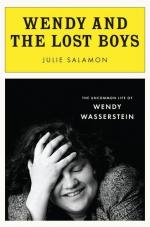|
This section contains 8,717 words (approx. 30 pages at 300 words per page) |

|
SOURCE: Balakian, Jan. “Wendy Wasserstein: A Feminist Voice from the Seventies to the Present.” In The Cambridge Companion to American Women Playwrights, edited by Brenda Murphy, pp. 213-31. Cambridge: Cambridge University Press, 1999.
In the following essay, Balakian traces the evolution of Wasserstein's feminist dramaturgy from Uncommon Women and Others through An American Daughter, highlighting the cultural confusion regarding contemporary women's roles that informs the characterizations of each play's respective protagonists.
As a young girl growing up in Brooklyn, and later in New York, Wendy Wasserstein experienced the conspicuous double standards between boys and girls that ignited her feminist instincts. While her brother received Richard Halliburton's Complete Book of Marvels—a travel guide to spectacular places around the world—for his Bar Mitzvah, she was reading Eloise and Madeline. And, to instill a sense of feminine etiquette in her daughter, her mother sent her to the Helena Rubinstein Charm...
|
This section contains 8,717 words (approx. 30 pages at 300 words per page) |

|


